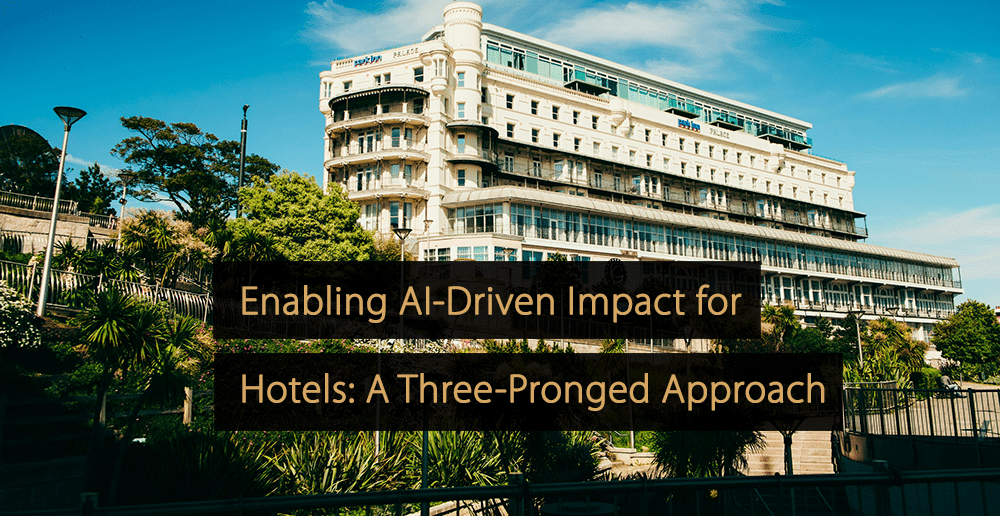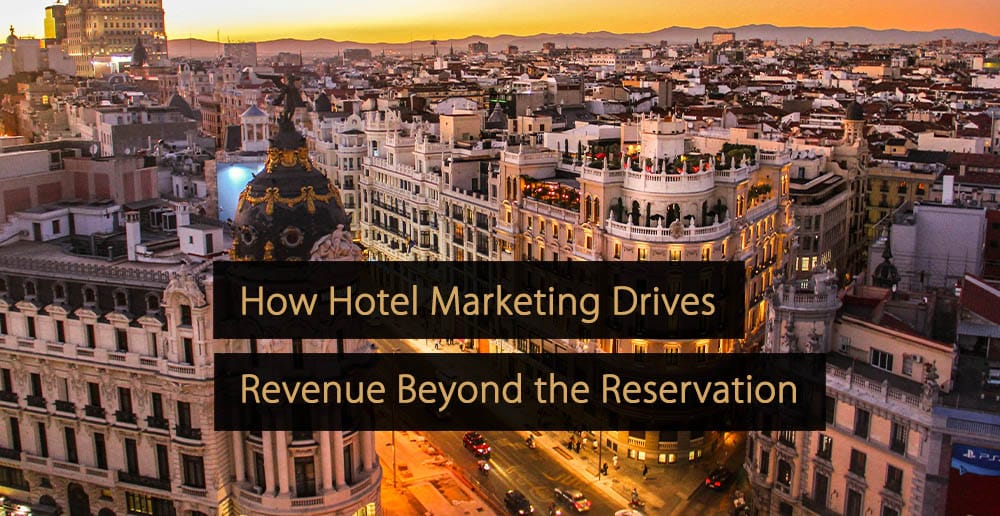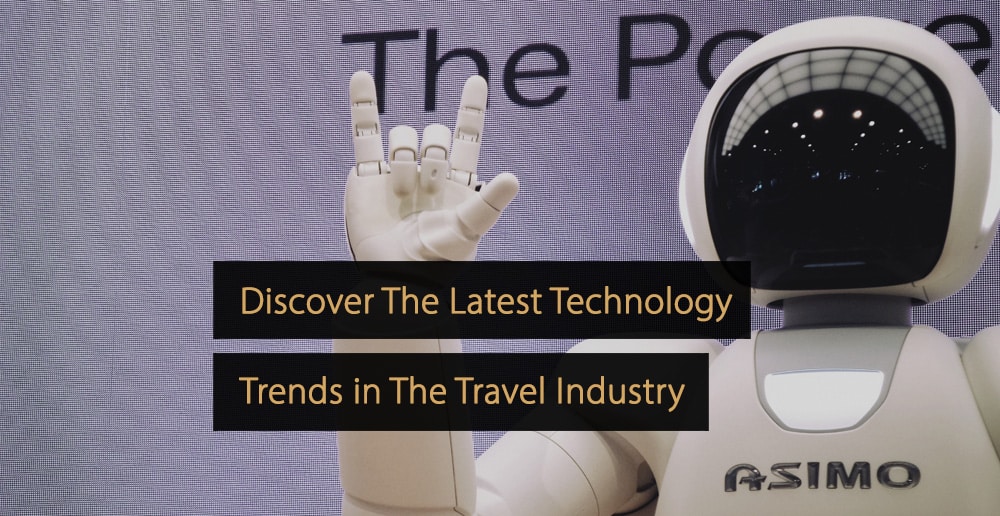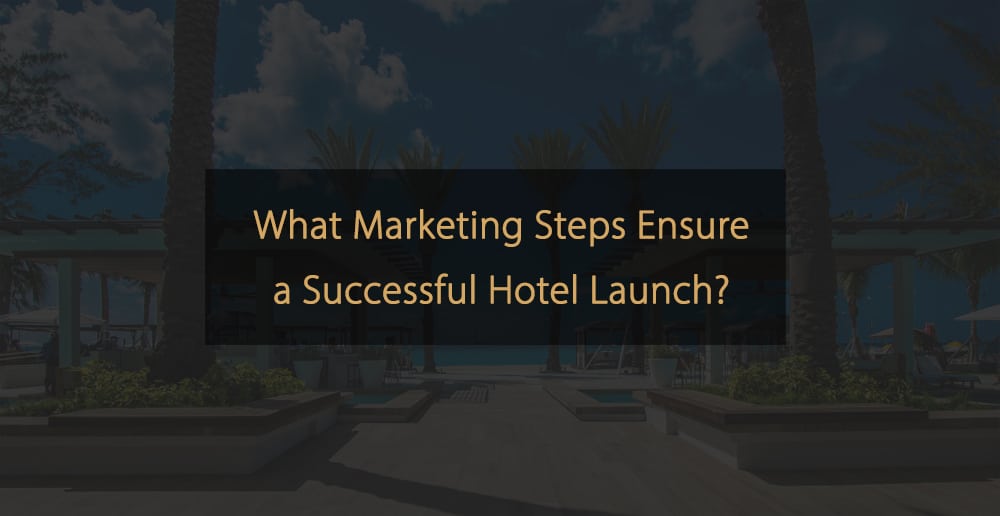Question for Our Hotel Marketing Expert Panel
What are the top tips and best practices for hotels to collect data in order to deliver personalised guest experiences? How can hotels handle data privacy? (Question by Michael J. Goldrich)
Industry Expert Panel
Our Industry Expert Panel exists out of professionals within the hospitality & travel Industry. They have comprehensive and detailed knowledge, experience in practice or management and are forward-thinking. They are answering questions about the state of the industry. They share their insights on topics like revenue management, marketing, operations, technology and discuss the latest trends.
Our Marketing Expert Panel
- Michael J. Goldrich – Founder & Chief Advisor, Vivander
- Luminita Mardale – Director Of Marketing And Business Development, Vienna House
- Nicole Sideris – Founder & Principal Consultant, X Hospitality
- Max Starkov – Adjunct Professor Hospitality Technology, New York University
- Tamie Matthews – Revenue, Sales & Marketing Consultant, RevenYou
- Reshan Jayamanne – Digital Marketing & Sales Strategist, Bnb Optimized
- Pablo Torres – Hotel Consultant
- Ask Our Panel a Question
- Join Our Expert Panel
“Creating a personalised experience is crucial for making guests feel valued and driving direct bookings. Generic discounts and one-size-fits-all approaches aren’t enough. Instead, focus on collecting and using data to offer truly personalised experiences.
Pre-stay surveys during the booking process are incredibly valuable. By asking guests about their preferences, such as room location, extra amenities, or past travel experiences, you can tailor their stay to their liking. Imagine a guest arriving at your boutique hotel in Napa and finding a personalised wine tasting recommendation based on their preferences—such thoughtful touches can make a significant impact and encourage direct bookings.
Behaviour and intent data collected from your hotel website can also enhance personalisation. By tracking how guests interact with your site, you can gather valuable insights into their preferences and interests. This data allows you to personalise website messaging, significantly increasing conversion rates and driving more direct bookings.
Mobile apps offer powerful opportunities for personalisation. A well-designed app allows guests to customise their stay by pre-ordering room service, adjusting the thermostat, or booking spa treatments. The app can track these preferences for future visits, ensuring a seamless and personalized experience every time. Post-stay feedback surveys are equally important. By understanding what worked well and what didn’t—perhaps the pillows were too soft—you can make notes in the guest’s profile to ensure an even better stay next time.
However, it’s crucial to handle data responsibly. Transparency is key—be upfront about what data you collect and how it’s used. A clear, easily accessible privacy policy builds trust. Empower your guests by offering an opt-in for personalisation. Some may prefer a straightforward service for a business trip, while others might want all the extra touches for a vacation. Respecting these preferences shows that you value them as individuals. Finally, invest in robust data security measures to protect guest information and clearly explain these measures in your privacy policy. Make it easy for guests to opt out of marketing emails or data collection entirely; a simple unsubscribe button can go a long way in showing respect for their privacy.”
“Hotels must determine what data is relevant for personalising guest experiences. With demographic data in mind: The hotel guests come from different demographic areas with different cultures. For example, the Asian culture is different to the European one, they prefer bathrooms with bathtubs and twin beds, even if they are a couple.
Hotels must always take the guest segment into consideration, as business travellers have different demands (Wi-Fi internet connection, desk in room, community table, business corner etc.) compared with families that prefer extra activities for kids. Hotels must always check how the reservation is made, and the details of the reservation.
Surveys and feedback forms can help hotels to learn about guest experiences and preferences and they must store these on their CRM Systems to help at the next guest stay (e.g., noting if a guest prefers to stay on an upper floor in a specific room type, if they want a wake -up call etc.). Regarding Data Protection, hotels must be transparent and obtain explicit consent from guests before collecting their data. Also, hotels must collect only relevant data for the guest experience and have restricted control access. Hotels must always stay updated with GDPR regulations.”
“Using WhatsApp. Guests have to opt in with the click of a button. Correspondence is a secure, real-time method that is extremely effective for all travellers, especially overseas travellers. If guests like they can opt-out at any time and databases do not need to be uploaded and opt ins potentially missed.”
“The Customer Data Platform (CDP) is the technology to achieve a 360-degree view of the guest data in order to provide personalised guest experiences and make it easily accessible and usable to all hotel departments.
The CDP aggregates all hotel first-party and zero-party data that is cleansed, de-duped, enriched and appended. First-party data is the customer data (past customers & guests, website users, opt-in email subscribers, lists of corporate travel managers, meeting planners, wedding and event planners, SMERF group leaders the property has been doing business with or at least in communications with, etc.) that comes from the PMS, CRS, WBE, CRM program, from the property’s website, opt-in email sign-ups, even customer lists sitting on laptops of sales and marketing personnel.
The CDPs like Cendyn’s Starling CDP and Revinate CDP are great examples for hotel CDPs.”
“When looking to collect usable data from guests, we must first give the guest a genuine reason to want to share their data, i.e., a reason that makes the customer want to share their email with you and removes the fear / annoyance of “now I am going to get spammed”.
- Can I get your email address to share hotel information and a special in-house guest discount?
- Can I get your mobile number so we can share information on our daily restaurant and bar flash sales?
- Can I get your email address to send a copy of your receipt?
- Can I get your mobile number to send your door code and wifi code?
Once we have the customer’s data, we need to treat it with respect and due care by using a reputable data warehouse to store it and make sure two factor authentication is turned on. All data should be stored according to the law of the land in which you reside. A quick Google will help you check your role and responsibilities.
When we start using said data for marketing purposes, always stop and consider if what you are sending is worthwhile. Have you segmented your database to ensure you are sending the right offers to the right people at the right time? Many people set up a secondary email address on Gmail or Hotmail for marketing purposes. They only go in there to grab what they need and otherwise let everything go to waste. If you are sending the same thing every month, no one is going to look at it. Make it compelling and useful.”
“Firstly ensure the process you have is GDPR compliant. Most vendors need to have GDPR-compliant procedures and end up getting themselves in hot water.
Secondly, be creative. Adding a [NAME] in your email is not personalisation. If you’re able to collect information from your prospects other than their basic details, provide a personalised experience through recommendations tailored to their inputs. A post-purchase survey that allows you to understand your customer in exchange for a gift card or credits to use within their stay is a great way to ethically bribe a customer to give you vital details that can enable you to provide a greater service which will greatly influence your lifetime value per customer.”
“To deliver personalised guest experiences, one must focus on what could be useful to enhance the guest’s booking + what is needed for CRM purposes. Of course you need to keep in mind GDPR in Europe, and the opt in/out option. Besides that, the more info you can collect, the more complete the profile will be. But then again, without a proper CRM, it will be pointless. A hotel with 100 rooms collects 500.000 data points/year, most of them just to be stored inside an old PMS…”
Ask a Question & Join Our Expert Panel
Would you like a question to be answered by our Industry Expert Panel? Or would you like to join our community of experts and share your experience, insights, and knowledge with fellow industry professionals? Via the buttons below you can submit a question or submit a request to become part of our expert panel.
More Tips to Grow Your Business
Revfine.com is the leading knowledge platform for the hospitality and travel industry. Professionals use our insights, strategies, and actionable tips to get inspired, optimize revenue, innovate processes, and improve customer experience.Explore expert advice on management, marketing, revenue management, operations, software, and technology in our dedicated Hotel, Hospitality, and Travel & Tourism categories.














Leave A Comment